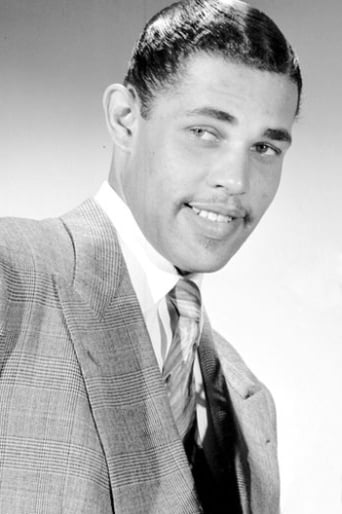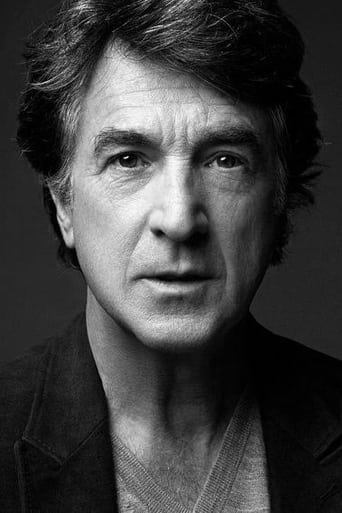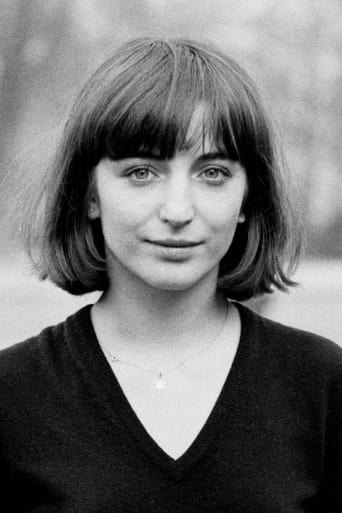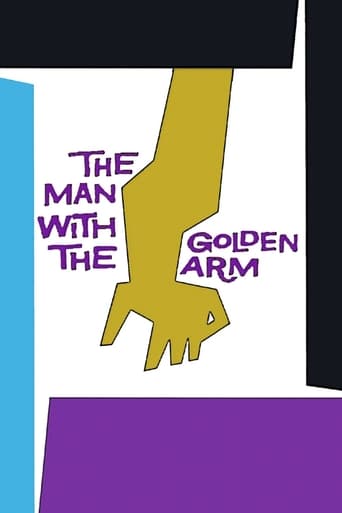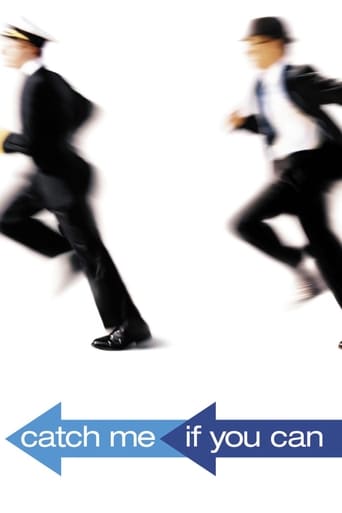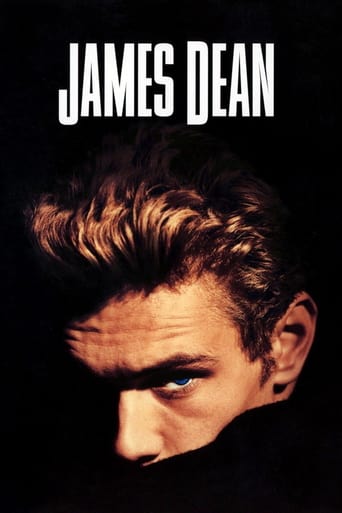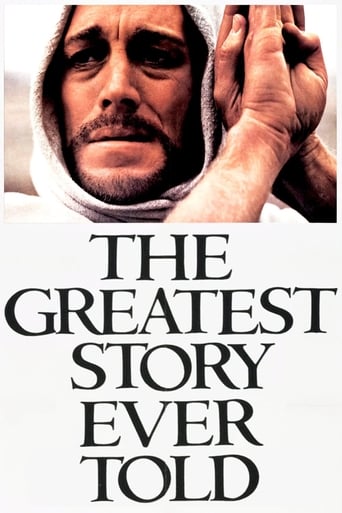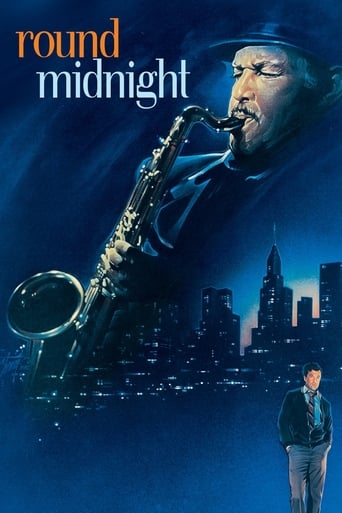
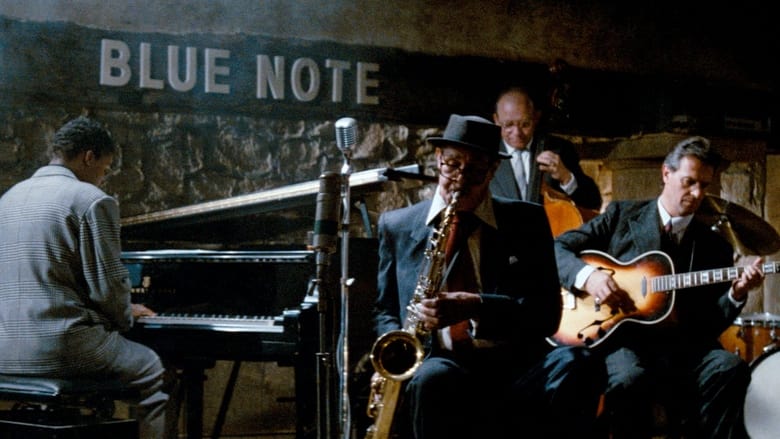
'Round Midnight (1986)
Inside the Blue Note nightclub one night in 1959 Paris, an aged, ailing jazzman coaxes an eloquent wail from his tenor sax. Outside, a young Parisian too broke to buy a glass of wine strains to hear those notes. Soon they will form a friendship that sparks a final burst of genius.
Watch Trailer
Cast
Similar titles
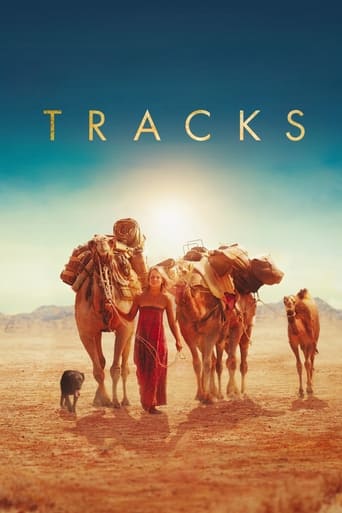
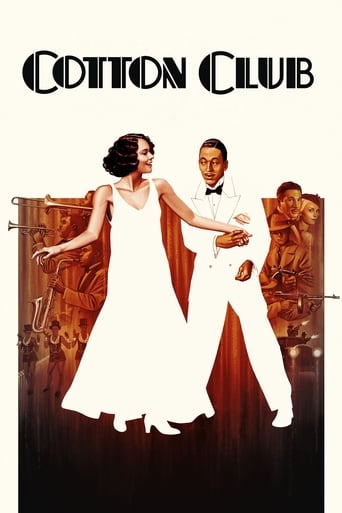
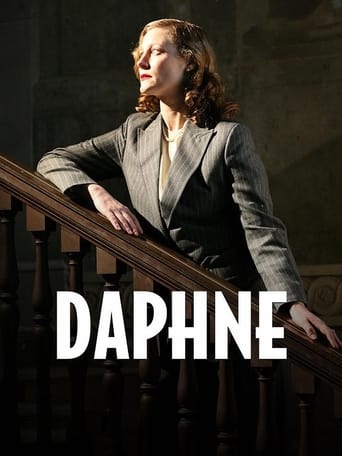
Reviews
Entertaining from beginning to end, it maintains the spirit of the franchise while establishing it's own seal with a fun cast
When a movie has you begging for it to end not even half way through it's pure crap. We've all seen this movie and this characters millions of times, nothing new in it. Don't waste your time.
A lot of perfectly good film show their cards early, establish a unique premise and let the audience explore a topic at a leisurely pace, without much in terms of surprise. this film is not one of those films.
Actress is magnificent and exudes a hypnotic screen presence in this affecting drama.
"'Round Midnight" the song is a jazz standard by pianist Thelonious Monk. It is thought that Monk originally composed the song sometime between 1940 and 1941. However, Harry Colomby claims that Monk may have written an early version around 1936 (at the age of 19) with the appropriate title of "Grand Finale". "'Round Midnight" is the most-recorded jazz standard composed by a jazz musician. On the website allmusic.com it is listed on over 1000 separate albums.The FILM 'Round Midnight, was inspired by the lives of real-life jazzmen Bud Powell and Lester Young, combined into the character of tenor sax player Dale Turner, played by Dexter Gordon. The character of Francis Borler, a Parisian man obsessed with Turner's music who befriends him, is based on Francis Paudras who wrote Dance of the infidels: a portrait of Bud Powell about his friendship with Powell.It is director Bertrand Tavernier's audio-visual lament for the impending death of jazz.In 'Round Midnight, real-life jazz legend Dexter Gordon brilliantly portrays Dale Turner, a musician slowly losing the battle with alcoholism, estranged from his family, and hanging on by a thread in the 1950's New York jazz world. Turner gets an offer to play in Paris, where, like many other black American musicians at the time, he enjoys a respect for his humanity that is not based upon the color of his skin. There he meets an admirer who befriends him and tries to save Turner from himself. Although for Dale the damage is already done, his poignant relationship with the man and his young daughter re-kindles his spirit and his music as the end draws near.Considered one of the world's greatest tenor saxophonists, jazz legend Dexter Gordon (1923-1990) was once quoted as saying, "Jazz to me is a living music. It's a music that since its beginning has expressed the feelings, the dreams, hopes, of the people." Gordon Dexter's height was 6 feet 6 inches and his nickname was Long Tall Dexter and because he was so large, so was his sound. He was known for his tendency to play behind the beat. Growing up, his doctor-father introduced him to his patients Duke Ellington & Lionel Hampton. Dexter joined Lionel Hampton's band in 1940 and then went on to play for Louis Armstrong, Fletcher Henderson, Billy Eckstine and Lester Young. During the late 1950s he spent time in and out of jail and in the early 1960s recorded some landmark albums for Blue Note Records before moving to Paris for 15 years. Gordon found Europe in the 1960s a much easier place to live, saying that he experienced less racism and greater respect for jazz musicians. Upon his return to the states in the 1970's he was rediscovered and claimed a genius. Near the end of his life he turned actor and made the film ROUND MIDNIGHT that captured some of the similarities of his life story. He was Oscar nominated for the role. Gordon died of kidney failure on April 25, 1990, at age 67. He was voted musician of the year by Down Beat magazine in 1978 and 1980, and in the latter year was inducted into Down Beat's Jazz Hall of Fame.Back in 1986 I managed a small art theater in Dayton, Ohio and we played this film, ROUND MIDNIGHT. That's when I first discovered this amazing slice of life film that took me to a world I had only heard of. And this too is what film preservation is about, sharing the past of others So sit back and enjoy this tribute to a by gone music, film and musician in ROUND MIDNIGHT!
This movie is about an aging, venerable jazz musician and composer, but it could be about any artist, particularly a musician, be he a classical, country western or blues artist. But the real star of the movie is the performing of the music--how it makes ineffable beauty, brings people together, touches the individual soul, creates love. The story shows how jazz and, in particular, this jazz musician (a composite of real jazz musicians and composers) inspires a young Frenchman whose life has been changed by this jazz artist's music. The plot is simple and transparent, but digs deep into the soul of a viewer who yields himself up to the movie, whether he likes jazz or not. I highly recommend this movie that shows the ups and downs of life in several aspects, but is really a tribute not merely to jazz musicians, but actually to the beauty of life that is found in personal experience and, more importantly, in inspiring works of art. The director Bertrand Tavernier is French and has made many movies, on a wide variety of subjects. This film is almost all in English, but his French films are well worth watching, even if you have issues with subtitles. This film made me cry and other of his films have similarly moved me. I hope readers will see this film and perhaps venture to watch some other films by director Tavernier. "A thing of beauty is a joy forever."
What the previous reviewer failed to mention is that this great movie is about BUD POWELL's life after he moved to France in 1959 due to his continuing health and mental problems. Powell, next to Monk, was the greatest jazz pianist in history, and is portrayed perfectly by tenor sax great Dexter Gordon. By the end of the film, I was left wondering what could have been for Powell. How much more of a brilliant career could we have seen ? Miles Davis always claimed that the electro-shock treatments that Powell received in the 1950s during his various stints in mental sanitariums, robbed the great pianist of his creativity and musical genius. Whatever the case, Powell joined the long list of sad endings to great, great jazz careers. Charlie Parker, Brownie, Lee Morgan, Eric Dolphy -- the streak of tragedy and greatness cut short runs like a bright orange thread throughout the history of this fine music.If you are a jazz fan, this movie truly is required viewing. If you are music fan, I suggest you give it a try. A moving piece.
I never write or read these comments because I don't care much what others think of a movie and I sure as heck can't stand reading a pointless review by someone pretending to be the NY Times movie critic using words like "iconoclastic" and otherwise taxing their thesaurus. But being a musician and avid fan myself, I felt I owed this to Dexter Gordon, an excellent musician whose work (I would have said "oeuvre" if I was pretentious, but I say what I mean and I don't need to impress you to make me feel better) was nothing short of legendary. Yes, Dexter Gordon is not an actor, but he did a good job and apparently the folks who hand out the Oscars thought the same, not that I would necessarily use them as a barometer, mind you, but they do pick more winners than losers. Although Dexter did spend about 15 years on/off in Paris, this story is NOT autobiographical, but the storyline of dealing with addictions, mental pain and physical suffering while honing a great talent can be applied to the lives of many jazz greats like Charlie Parker, Lester Young & Bud Powell just to name a few. It's a "dark" movie indeed, but the life of a musician can be very dark. This movie shows how 2 people can work together to overcome their fears, regrets and troubles, and how they interact with the various people and situations in their lives, a true character study revolving around music. The movie is actually more about Francois' character than Dexter's as it's seen from his point of view. It's about the frailty of the human soul and it's about compassion for supreme artistry. Most importantly, regardless of your impression of the movie, you get to see some real legends perform some wonderful jazz. Yes, Dexter Gordon was certainly beyond his prime and you will hear a few clunkers and pitch variance, but you will appreciate his talent nonetheless if you understand or enjoy jazz music at all. If you want to hear him really shine, go listen to his music from the late 40's & also the 60's during his first comeback; Dexter had 3 great comebacks --- and they say Sinatra was a genius at reinvention. That will give you a true sampling of his talent before he got old and started losing his wind. Even though he didn't play to perfection, he still played damn well in this movie and you can hear the experience in his phrasing and choice of notes --- for instance, at the very end of "Body & Soul", where he formerly played a very long ending like a virtuoso in an earlier recording (something you probably expect from someone like Kenny G, who plays about 40 notes where only 10 fit comfortably), Dexter now plays a single, beautifully-placed note. That one single note blew me away! You have to understand and appreciate the fact that most players (and most people) say way too much with their music or words when a carefully placed note or word can say volumes with its understatement, like a single picture with no caption. To play that one note in that one spot was pure genius. Bob James has been known to do the same --- less is more sometimes. Francois Cluzet does a heckuva job as protector and friend and the cameo by Martin Scorsese is priceless. The ending always leaves me wanting more and that's the mark of an excellent movie --- one so good you don't want it to end; you want to be within the movie yourself and you feel you're a part of it. The only reason I gave this a 9 instead of 10 was because it's not a great classic movie like Casablanca or The Godfather, but it touched me as much or more than those movies ever had. But this wasn't meant to be a piece of cinematic history and achievement, it is what it is, a period film about life of a jazz legend and in that respect it does everything possible and them some. This movie deserves your respect, your time and your admiration of a great jazz saxophonist, Dexter Gordon, and kudos to all the musicians involved, especially Herbie Hancock. Actress Lonette McKee does an excellent job on the vocals as well. It also gives you a good feel of a real urban jazz club in the early 60's and how life was for these jazz legends. If you get hooked on this stuff you'll never listen to anything else as it will never measure up, but jazz is very cerebral and it takes someone with a passion for aesthetics to appreciate it. Chess is great too, but you don't see many kids playing Chessmaster on their computers. This movie is an acquired taste and an excellent one at that. Thanks for the memories, Dexter.
